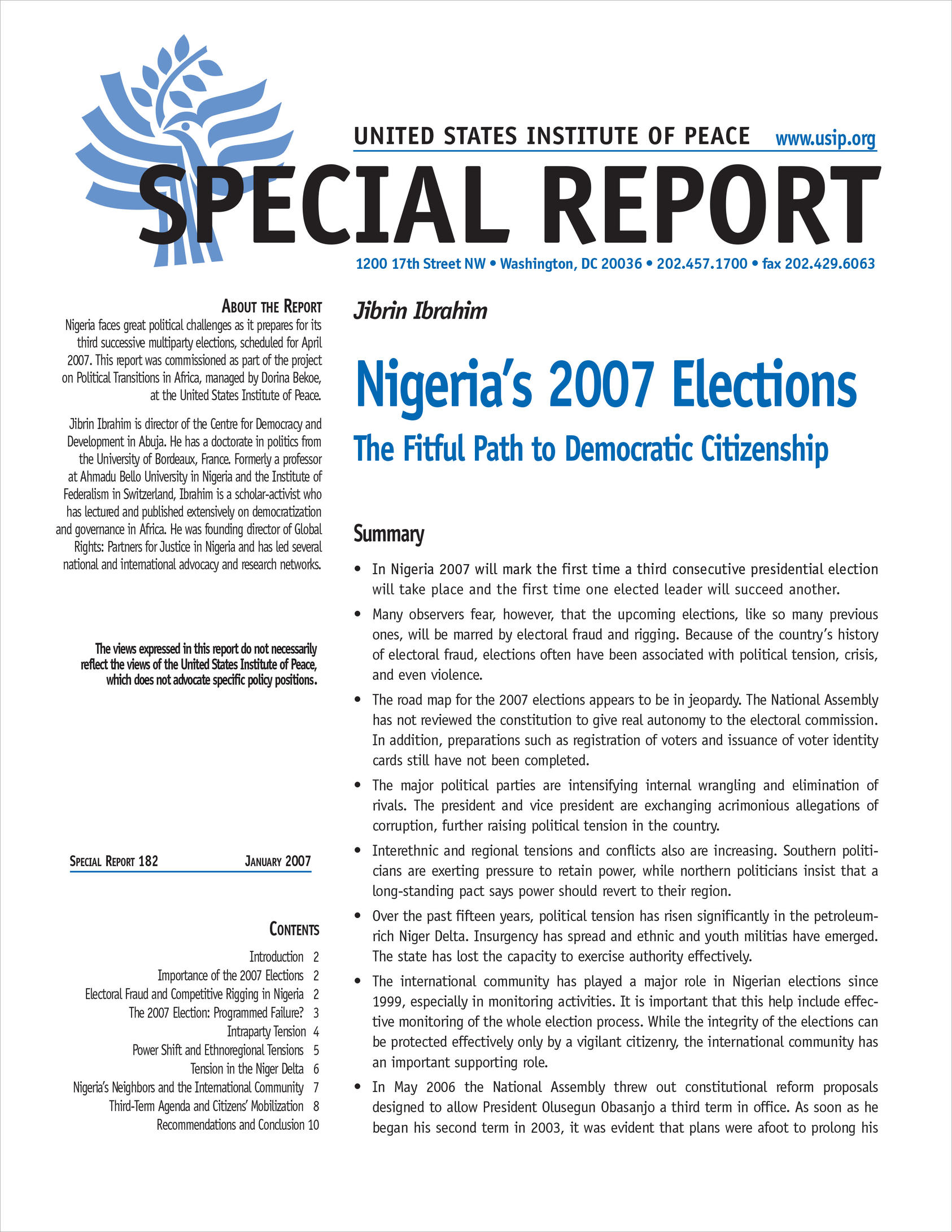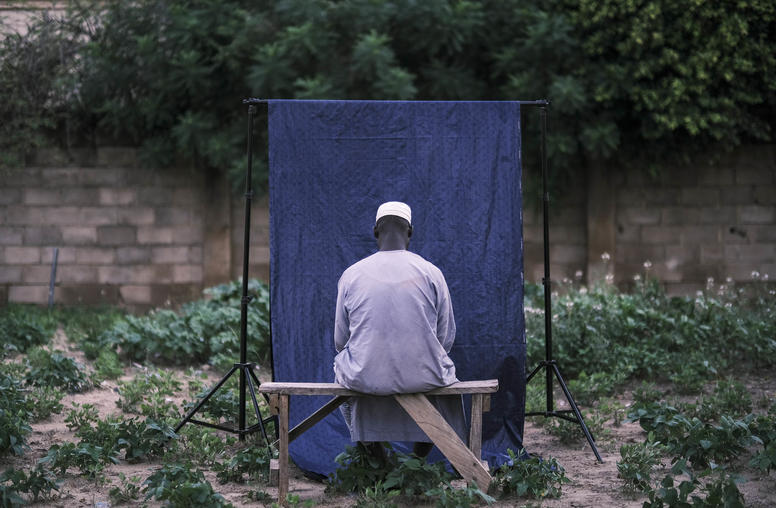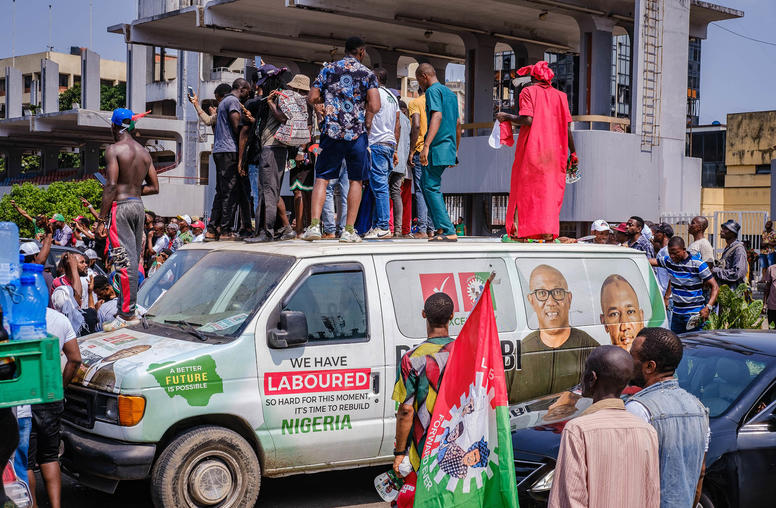Nigeria's 2007 Elections: The Fitful Path to Democratic Citizenship
The road map for the 2007 elections in Nigeria appears to be in jeopardy. Many observers fear that the upcoming elections, like so many previous ones, will be marred by electoral fraud and rigging. Because of this history, elections have often been associated with political tension, crisis, and even violence.

Summary
- In Nigeria 2007 will mark the first time a third consecutive presidential election will take place and the first time one elected leader will succeed another.
- Many observers fear, however, that the upcoming elections, like so many previous ones, will be marred by electoral fraud and rigging. Because of the country ’s history of electoral fraud, elections often have been associated with political tension, crisis, and even violence.
- The road map for the 2007 elections appears to be in jeopardy. The National Assembly has not reviewed the constitution to give real autonomy to the electoral commission. In addition, preparations such as registration of voters and issuance of voter identity cards still have not been completed.
- The major political parties are intensifying internal wrangling and elimination of rivals. The president and vice president are exchanging acrimonious allegations of corruption, further raising political tension in the country.
- Interethnic and regional tensions and conflicts also are increasing. Southern politicians are exerting pressure to retain power, while northern politicians insist that a long-standing pact says power should revert to their region.
- Over the past fifteen years, political tension has risen significantly in the petroleum-rich Niger Delta. Insurgency has spread and ethnic and youth militias have emerged. The state has lost the capacity to exercise authority effectively.
- The international community has played a major role in Nigerian elections since 1999, especially in monitoring activities. It is important that this help include effective monitoring of the whole election process. While the integrity of the elections can be protected effectively only by a vigilant citizenry, the international community has an important supporting role.
- In May 2006 the National Assembly threw out constitutional reform proposals designed to allow President Olusegun Obasanjo a third term in office. As soon as he began his second term in 2003, it was evident that plans were afoot to prolong his rule beyond the constitutionally determined tenure. The fact that he was stopped in his tracks gives hope that Nigerians will continue to struggle for democracy.
- A new consciousness is rising in the country that people must organize to defend their franchise. If a plan for a programmed failure of the 2007 elections does exist, chances are that Nigerians will combat it and try to salvage the elections. Observers are waiting to see if they can succeed.
About the Report
Nigeria faces great political challenges as it prepares for its third successive multiparty elections, scheduled for April 2007. This report was commissioned as part of the project on Political Transitions in Africa, managed by Dorina Bekoe, at the United States Institute of Peace.
Jibrin Ibrahim is director of the Centre for Democracy and Development in Abuja. He has a doctorate in politics from the University of Bordeaux, France. Formerly a professor at Ahmadu Bello University in Nigeria and the Institute of Federalism in Switzerland, Ibrahim is a scholar-activist who has lectured and published extensively on democratization and governance in Africa. He was founding director of Global Rights: Partners for Justice in Nigeria and has led several national and international advocacy and research networks.



